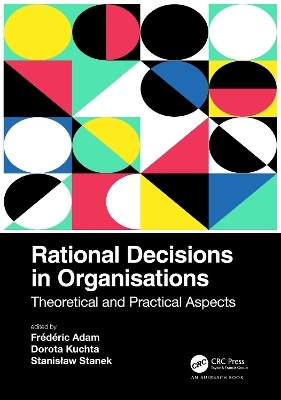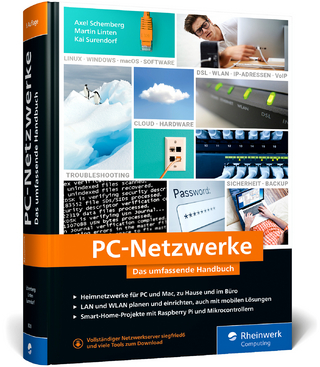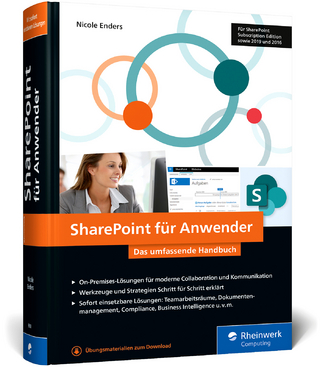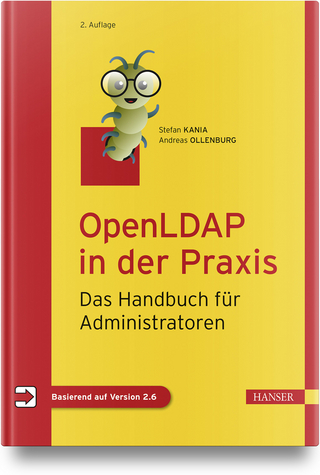
Rational Decisions in Organisations
Auerbach (Verlag)
978-1-032-19395-3 (ISBN)
Managers in organisations must make rational decisions. Rational decision making is the opposite of intuitive decision making. It is a strict procedure utilising objective knowledge and logic. It involves identifying the problem to solve, gathering facts, identifying options and outcomes, analysing them, considering all the relationships and selecting the decision.
Rational decision making requires support: methods and software tools. The identification of the problem to solve needs methods that would measure and evaluate the current situation. Identification and evaluation of options and analysis of the available possibilities involves analysis and optimisation methods. Incorporating intuition into rational decision making needs adequate methods that would translate ideas or observed behaviours into hard data. Communication, observation and opinions recording is hardly possible today without adequate software. Information and data that form the input, intermediate variables and the output must be stored, managed and made accessible in a user-friendly manner.
Rational Decisions in Organisations: Theoretical and Practical Aspects presents selected recent developments in the support of the widely understood rational decision making in organisations, illustrated through case studies. The book shows not only the variety of perspectives involved in decision making, but also the variety of domains where rational decision support systems are needed. The case studies present decision making by medical doctors, students and managers of various universities, IT project teams, construction companies, banks and small and large manufacturing companies.
Covering the richness of relationships in which the decisions should and must be taken, the book illustrates how modern organisations operate in chains and networks; they have multiple responsibilities, including social, legal, business and ethical duties. Nowadays, managers in organisations can make transparent decisions and consider a multitude of stakeholders and their diverse features, incorporating diverse criteria, using multiple types and drivers of information and decision-making patterns, and referring to numerous lessons learned. As the book makes clear, the marriage of theoretical ideas with the possibilities offered by technology can make the decisions in organisations more rational and, at the same time, more human.
Frédéric Adam is a full professor in the Department of Business Information Systems at the University College of Cork’s Business School, Cork Ireland. His research interests are focused on decision support systems both in business and in the medical area where he has led several projects aimed at developing decision support artefacts for clinicians. He has also published extensively in the ERP area. He is a principal investigator (PI) in the Financial Services Innovation Centre and a founding PI in the INFANT Research Centre. Dorota Kuchta is a full professor in the Faculty of Management at the Wroclaw University of Science and Technology, Wroclaw, Poland. Her research interests are focused on management models and methods under uncertainty, ambiguity and incomplete knowledge. She has led myriad research projects in the field of project management. She is the holder of two project management certificates: Certified Project Management Associate and PRINCE2 Foundation. Stanisław Stanek is a professor in the Faculty of Management at the General Tadeusz Kościuszko Military University of Land Forces, Wrocław, Poland. His research interests are focused on decision support systems. He has designed and implemented computerized decision support systems for businesses across a variety of industries and managed projects in the field of hybrid crisis decision support systems, logistics, IT and construction project management.
Part I The Human Perspective of Decision Making 1. Intuition in Decision Making: An Investigation in the Delivery Room. 2.The Moral Dilemmas Involved in Decisions to Respond to Physical Aggression. Part II Organisational Perspective of Decision Making 3. Maturity Evaluation in Construction Companies Based on Case Study Research and Fuzzy Set Theory. 4. Corporate Health and Safety Performance Index as a Measure of the Level of Occupational Health and Safety Management in the Company Based on the ISO 45001 Standard. 5.The Theoretical and Practical Design Thinking Approach in IT Project: The Remote Human REsource Management System Case Study. Part III Uncertainty and Pressure In Decision Making 6. Increasing the Efficiency of IT Waterfall Projects Control: Modified Earned Value Analysis Combined with Parametric Estimation. 7. An Application of Decision Support Technique for Global Software Project Monitoring and Rescheduling Based on Risk Analysis. 8. Type-2 Fuzzy Numbers in Models of Project Time Affected by Risk. Part IV Software Applied to Decision Making in Organisations 9. Socialising Decision Enactment: Living Provenance in Decision Support. 10. Machine Learning Solutions in the Management of a Contemporary Business Organisation: A Case Study Approach in a Banking Sector. 11. Integration of the Decision Support System with the Human Resources Management and Identity and Access Management Systems in an Enterprise. Conclusions
| Erscheinungsdatum | 16.05.2022 |
|---|---|
| Zusatzinfo | 57 Tables, black and white; 35 Line drawings, black and white; 7 Halftones, black and white; 42 Illustrations, black and white |
| Verlagsort | London |
| Sprache | englisch |
| Maße | 178 x 254 mm |
| Gewicht | 453 g |
| Themenwelt | Mathematik / Informatik ► Informatik ► Netzwerke |
| Mathematik / Informatik ► Informatik ► Theorie / Studium | |
| Wirtschaft ► Betriebswirtschaft / Management ► Logistik / Produktion | |
| Wirtschaft ► Betriebswirtschaft / Management ► Projektmanagement | |
| Wirtschaft ► Volkswirtschaftslehre | |
| ISBN-10 | 1-032-19395-6 / 1032193956 |
| ISBN-13 | 978-1-032-19395-3 / 9781032193953 |
| Zustand | Neuware |
| Informationen gemäß Produktsicherheitsverordnung (GPSR) | |
| Haben Sie eine Frage zum Produkt? |
aus dem Bereich


